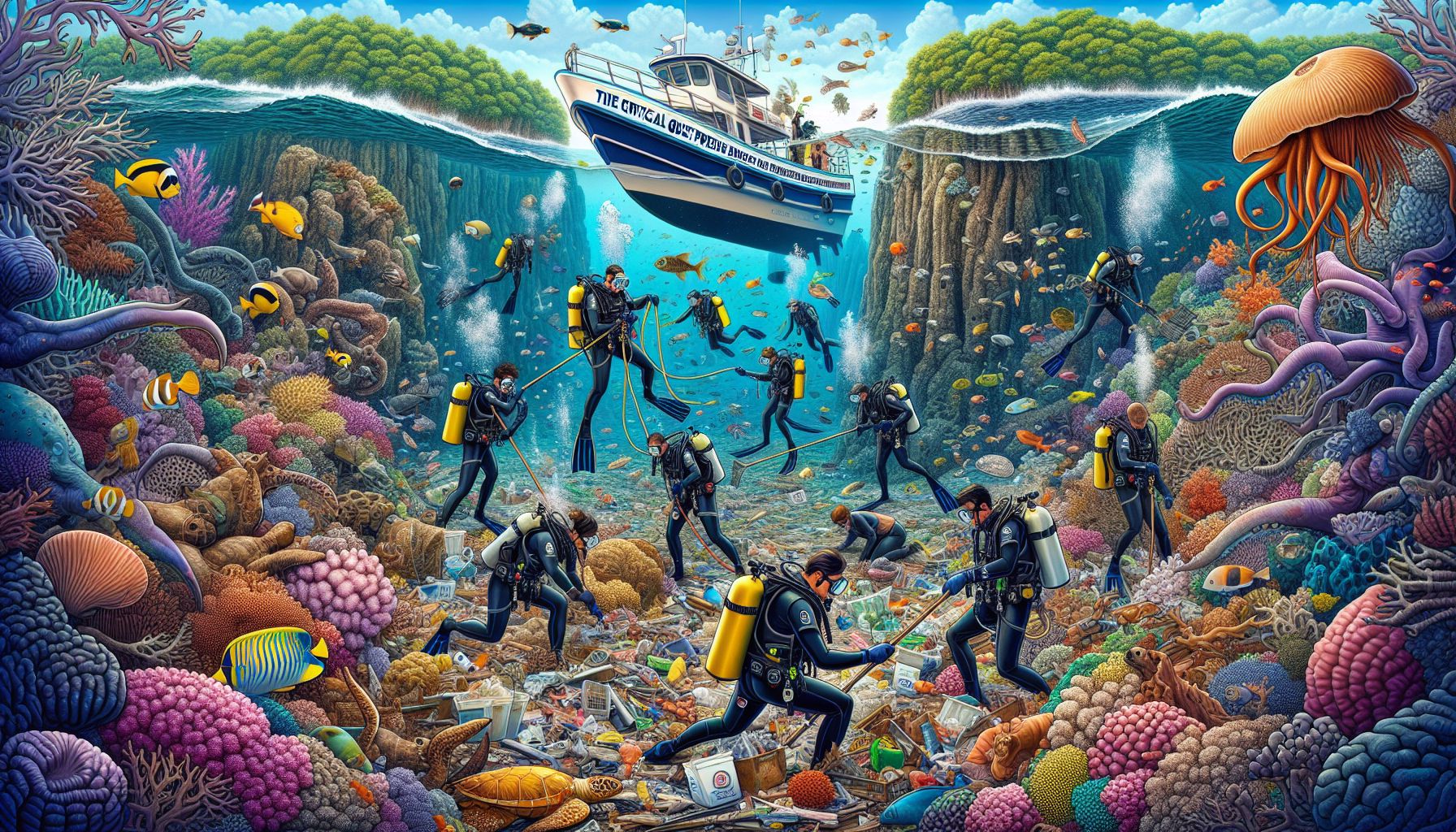Ocean conservation is an umbrella term that encompasses a multitude of efforts and actions aimed at protecting the Earth’s oceans and the myriad of life forms that call it home. It’s an inter-disciplinary field that intersects with marine biology, environmental science, policy-making, and even areas of social justice. In this comprehensive article, we will delve into the various aspects of ocean conservation, touching upon its importance, the challenges faced, the strategies employed to address these challenges, and the role of individuals in contributing to healthier oceans.
The Importance of Ocean Conservation
The oceans cover more than 70% of the Earth’s surface and are fundamental to life on our planet. They provide half of the oxygen we breathe, support a rich biodiversity, and are a source of food and livelihood for millions of people around the globe. Additionally, oceans play a critical role in climate regulation by absorbing large amounts of carbon dioxide and distributing heat around the globe through their currents.
Sources of Marine Biodiversity
The oceans are home to an estimated 200,000 to 2 million species, with many still to be discovered. This biodiversity ranges from microscopic plankton to the largest animals on the planet, such as blue whales.
- Plankton: Tiny but mighty, these organisms are the foundation of the oceanic food chain.
- Coral Reefs: Often referred to as the “rainforests of the sea,” coral reefs provide habitat for an estimated 25% of all marine species.
- Fish: Over 33,000 species of fish are found in the ocean, contributing to the global food web and human nutrition.
- Mammals: Marine mammals including dolphins, whales, and seals rely on healthy oceans for their survival.
- Invertebrates: A rich diversity of invertebrates such as octopuses, squids, and lobsters also thrive in the ocean depths.
Challenges Faced by the Oceans
Today, our oceans are under threat from various anthropogenic activities. Some of the most pressing challenges include:
- Overfishing: This depletes fish stocks faster than they can replenish, disrupting the balance of marine ecosystems.
- Pollution: Plastics, chemicals, and other waste products are contaminating the oceans, harming marine life, and entering the food chain.
- Climate Change: Rising temperatures and ocean acidification due to increased CO2 levels are causing coral bleaching and threatening marine species.
- Habitat Destruction: Coastal development, dredging, and other activities are destroying critical habitats like mangroves and seagrass beds.
Strategies for Ocean Conservation
To combat these challenges, a multi-faceted approach to ocean conservation is necessary. Some of the strategies include:
- Marine Protected Areas (MPAs): Establishing MPAs can help preserve biodiversity by restricting certain activities like commercial fishing and extractive industries.
- Sustainable Fishing Practices: Efforts such as catch limits, bycatch reduction gear, and community-managed fisheries can help ensure fish populations remain at sustainable levels.
- Pollution Reduction Initiatives: Reducing single-use plastics, improving waste management, and treating wastewater can lower the amount of pollution entering the oceans.
- Climate Change Mitigation: Adopting renewable energy sources, protecting blue carbon ecosystems, and reducing greenhouse gas emissions are vital for protecting the oceans from the worst impacts of climate change.
- Research and Monitoring: Ongoing scientific research and monitoring are critical for understanding ocean ecosystems and the effectiveness of conservation measures.
The Role of International Agreements
Various international agreements and organizations work towards ocean conservation. Some notable ones include:
- United Nations Convention on the Law of the Sea (UNCLOS): Often regarded as the “Constitution for the Oceans,” it sets out the legal framework for marine activities and conservation.
- Convention on Biological Diversity (CBD): A multilateral treaty aimed at developing national strategies for the conservation and sustainable use of biological diversity.
Individual Actions and Ocean Stewardship
Everyone can contribute to ocean conservation. Here are some actions individuals can take:
- Reduce Plastic Use: Avoiding single-use plastics and supporting bans on items like plastic bags can drastically reduce ocean pollution.
- Sustainable Seafood Choices: Opting for sustainably caught or farmed seafood can relieve pressure on wild fish populations.
- Carbon Footprint Reduction: Making lifestyle changes that lower carbon emissions can fight ocean acidification and warming.
- Education and Advocacy: Learning about ocean issues and raising awareness can inspire others to take action and advocate for effective policies.
Conclusion
Ocean conservation is a critical and complex field, requiring cooperation from governments, organizations, scientists, and citizens around the world. Healthy oceans are not only crucial for the incredible variety of life they sustain but also for the overall well-being of our planet and future generations. Engaging in ocean conservation is an investment in the sustainability of our global ecosystem, as well as in the economic and social structures that rely on it.
Sources
- United Nations – The Law of the Sea (www.un.org/depts/los/convention_agreements/convention_agreements.htm)
- National Oceanic and Atmospheric Administration – Ocean Facts (www.noaa.gov/oceans-coasts/ocean-facts)
- The Marine Conservation Society – What We Do (www.mcsuk.org/what-we-do/)
The call to action is clear—time is of the essence in the movement towards ocean conservation. Through collective and individual efforts, we can work towards a future where oceans continue to thrive and support the remarkable life within them.
